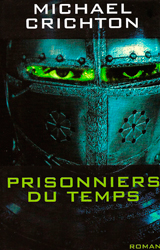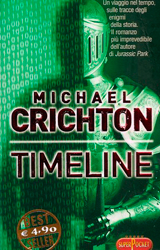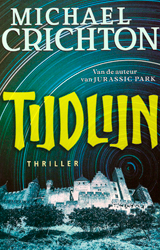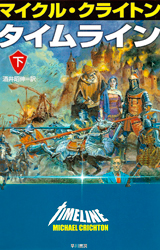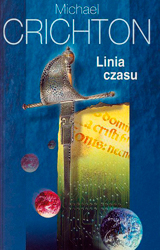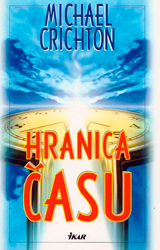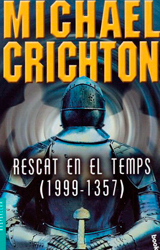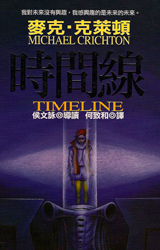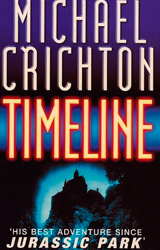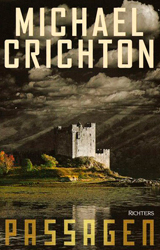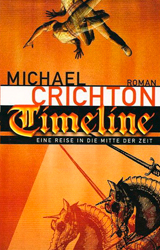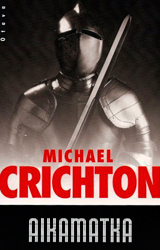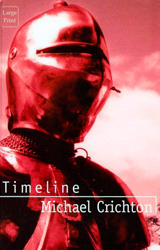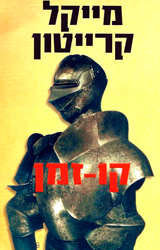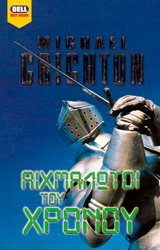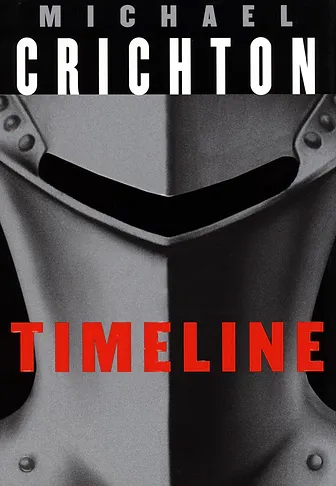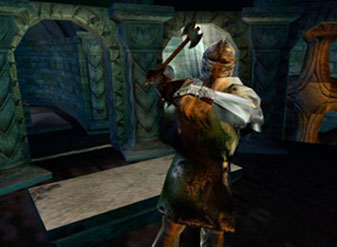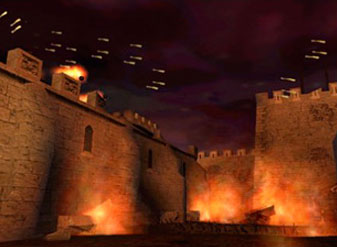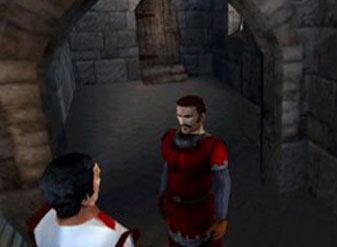Timeline
In His Own Words
I hadn’t written an adventure story since Jurassic Park, and I thought it was time for another one.
So I began to think: suppose it was really possible to travel in time. What would it be like? Would it be frightening? (I think it would be.) Would it be more dangerous than space travel? (Much more dangerous.) What would make you go anyway?
In recent years, most time travel stories have been comedies, or allegories. Even the famous novel by H.G. Wells just uses time travel to make a point about the society at the time the novel was written. But in Timeline, I wanted to write a time travel story that took its premise seriously. And I wanted to write a story that dealt with the reality behind our cliched images of knights and courtly love. I wanted to talk about what knighthood was really like.
This required a tremendous amount of research, and it took me almost twice as long to write as any other book except Jurassic Park. But in the end, I had uncovered a world where you are may be killed if you pick up a glove from the floor; where you are in mortal danger if you say you are “gentle;” where pastry is made to look like animal intestines; where monasteries are used for tennis courts; where a woman who cuts her hair short risks death; where gunpowder explodes if it gets wet-in short, where nothing is as we’d expect it to be.
That’s the world of Timeline, I had fun writing it, and I hope readers enjoy it, too.


Synopsis
In an Arizona desert a man wanders in a daze, speaking words that make no sense. Within twenty-four hours he is dead, his body swiftly cremated by his only known associates. Halfway around the world archaeologists make a shocking discovery at a medieval site. Suddenly they are swept off to the headquarters of a secretive multinational corporation that has developed an astounding technology. Now this group is about to get a chance not to study the past but to enter it. And with history opened to the present, the dead awakened to the living, these men and women will soon find themselves fighting for their very survival-six hundred years ago.
Passage 1
He had a term for people like this: temporal provincials – people who were ignorant of the past, and proud of it.
Temporal provincials were convinced that the present was the only time that mattered, and that anything that had occurred earlier could be safely ignored. The modern world was compelling and new, and the past had no bearing on it. Studying history was as pointless as learning Morse code, or how to drive a horse-drawn wagon. And the medieval period – all those knights in clanking armor and ladies in gowns and pointy hats – was so obviously irrelevant as to be beneath consideration.
Yet the truth was that the modern world was invented in the Middle Ages. Everything from the legal system, to nation-states, to reliance on technology, to the concept of romantic love had first been established in medieval times. These stockbrokers owed the very notion of the market economy to the Middle Ages. And if they didn’t know that, then they didn’t know the basic facts of who they were. Why they did what they did. Where they had come from.
Professor Johnston often said that if you didn’t know history, you didn’t know anything. You were a leaf that didn’t know it was part of a tree.
Passage 2
“The very concept of time travel makes no sense, since time doesn’t’ flow. The fact that we think time passes is just an accident of our nervous systems – of the way things look to us. In reality, time doesn’t pass; we pass. Time itself is invariant. It just is. Therefore, past and future aren’t separate locations, the way New York and Paris are separate locations. And since the past isn’t a location, you can’t travel to it.”
They were silent. They just stared at him.
“It is important to be clear about this,” Gordon. “The ITC technology has nothing to do with the time travel, at least not directly. What we have developed is a form of space travel. To be precise, we use quantum technology to manipulate an orthogonal multiverse coordinate change.”
They looked at him blankly.
“It means,” Gordon said, “that we travel to another place in the multiverse.”
“And what’s the multiverse?” Kate said.
“The multiverse is the world defined by quantum mechanics. It means that – ”
“Quantum mechanics?” Chris said. “What’s quantum mechanics?”
Gordon paused. “That’s fairly difficult. But since you’re historians,” he said, “let me try to explain it historically.”
Passage 3
All this flashed through Kate Erickson’s mind as she entered the great hall of Castelgard. What she was about to see, no historian had ever seen before. She walked in, slipping through the crowd, following Marek. And she stared, stunned by the richness and the chaos displayed before her.
The great hall sparkled like an enormous jewel. Sunlight streamed through high windows onto walls that gleamed with tapestries laced with gold, so that reflections danced on the red-and-gold-painted ceiling. One side of the room was hung with a vast patterned cloth: silver fleur-de-lis on a background of deep blue. On the opposite wall, a tapestry depicting a battle: knights fighting in full regalia, their armor silver, their surcoats blue and white, red and gold; their fluttering banners threaded with gold.
At the end of the room stood a huge ornate fireplace, large enough for a person to walk into without ducking, its carved mantelpiece gilded and shimmering. In front of the fire stood a huge wicker screen, also gilded. And above the mantel hung a patterned tapestry of swans flying on a field of lacy red and gold flowers.
The room was inherently elegant, richly and beautifully executed – and rather feminine, to modern eyes. Its beauty and refinement stood in marked contrast to the behavior of the people in the room, which was noisy, boisterous, crude.
From the Archives
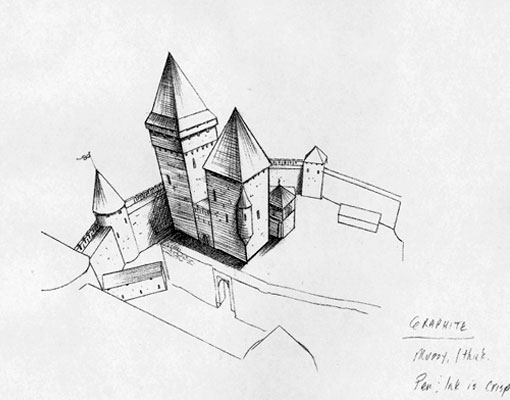

The book needed images to help modern readers visualize the medieval world. I worked with artist Cathy Kanner on a variety of styles. Eventually we settled on images that were first sketched using architectural drafting software, to provide a precise perspective. This gave us the feeling of reality we were after.
Publicity Photos
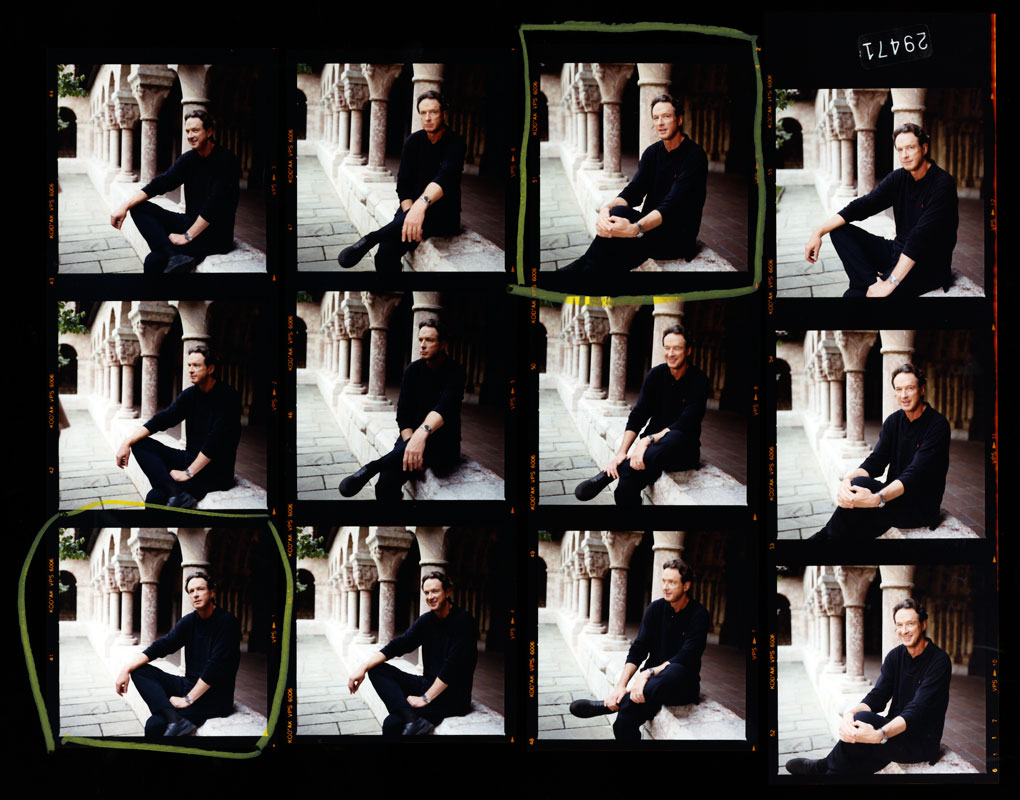

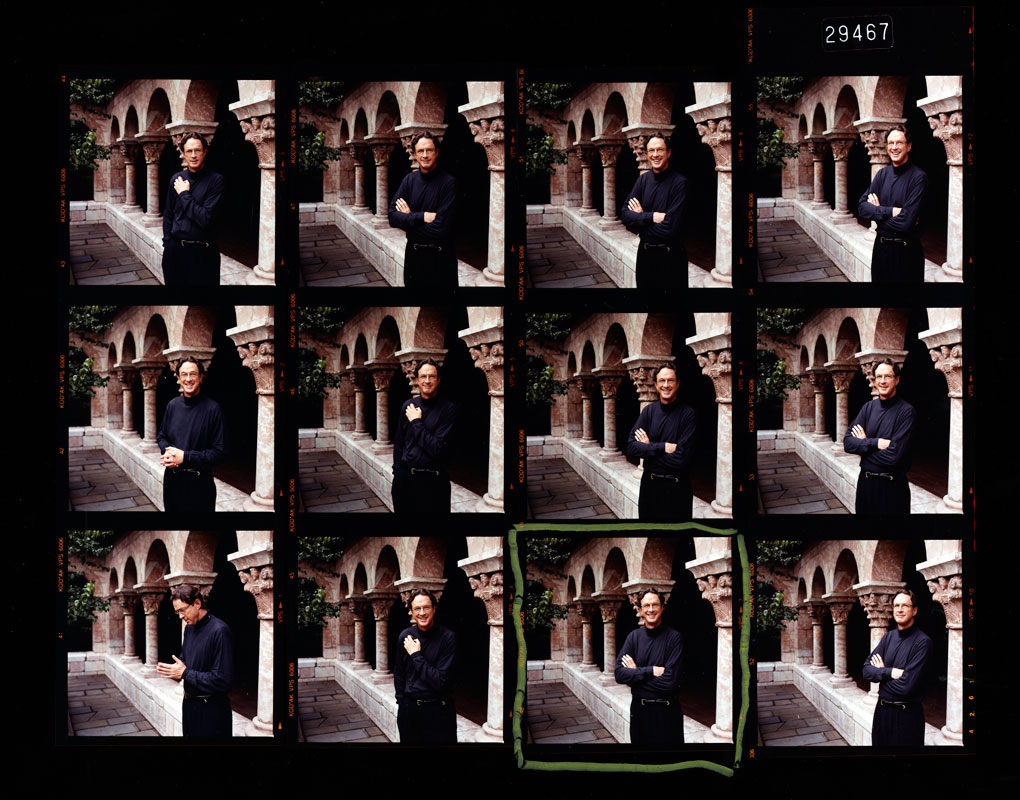

“Because of the way they’re constructed, Crichton’s books tend to be as absorbing as his variables are; this helps explain the gigantic success of Jurassic Park and Lost World and even Disclosure—nobody, after all, ever gets completely over the universal fascination with dinosaurs, and nothing in the postfeminist 1990’s was as delicious to argue about as sexual harassment — and the relatively lukewarm reception that, say, Airframe received. (All sensible people are terrified of flying; do you really need to know whether the problem is malfunctioning ailerons or leaky gas tanks?) As taught by Crichton, the Middle Ages are a lot more interesting than you remember from your 10th-grade history class. I’m not talking about standard-issue Sherwood Forest ”atmosphere” (although that, inevitably, is present, too: ”It is nigh on terce. Will your guests dine on our simple fare?”). With Crichton you get the really cool minutiae: the sartorial choices offered to knights getting dressed for tournaments (”Flex sabaton or firm?” ”Vambrace guard or side plate?”), or the more esoteric achievements of medieval chefs, who could whip up pastries to look like — well, anything. ”The testicles are particularly well made,” one character says admiringly of his dessert. Glorious Foods, look out.”
You can read the entire review at the New York Times Website.
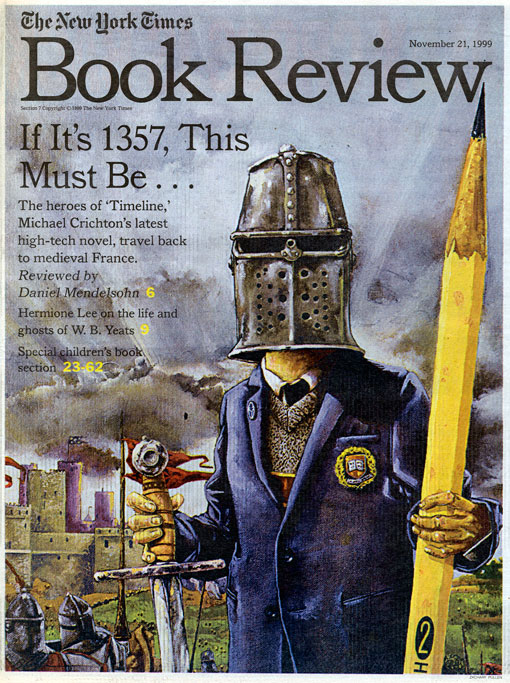

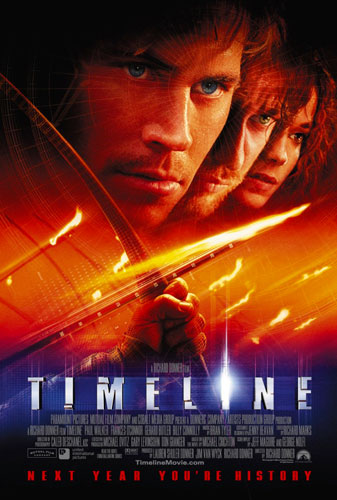

Timeline (Movie)
| Release Date: | November 26, 2003 |
| Running Time: | 1 hr. 56 min. |
| MPAA: | PG13 |
| Director: | Richard Donner |
| Screenwriter: | Jeff Magurie |
| Based on the Novel by: | Michael Crichton |
| Studio: | Paramount Pictures |
| Starring: | Paul Walker, Frances O’Connor, Gerard Butler, Billy Connolly, David Thewlis, Anna Friel, Neal McDonough, Matt Craven, Michael Sheen |
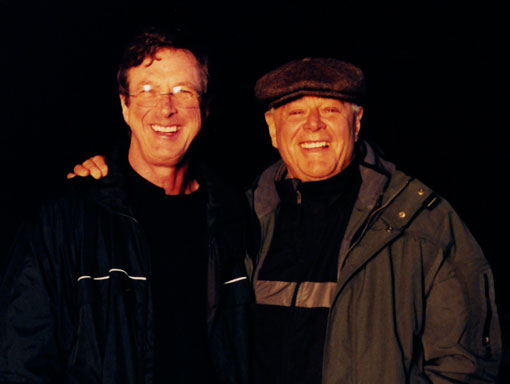

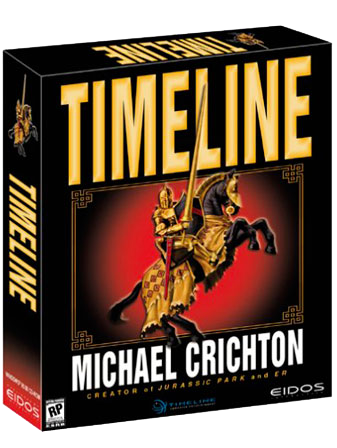

Video Game
You are part of a team of archeologists excavating an historic region of modern day France. Your team leader, Professor Johnston, has mysteriously disappeared leaving behind an unexpected videotape addressed to you with an imperative request. Now you must travel back to fourteenth century France to rescue him. And the adventure begins!
With the assistance from your fellow adventurer, make your way through a challenging and perilous interactive world to rescue your professor. Characters come to life with innovative facial animations and full audio dialogue. Immerse yourself in diverse and realistic environments all modeled with historic accuracy to create an authentic experience. Timeline is uniquely designed to be easy to learn, but still fun and challenging to play.
Michael Crichton’s latest best-selling novel is brought to life! Experience the vivid realism, thrilling exploration, and unexpected suspense of his most dramatic adventure story since Jurassic Park.
Travel back in time to 14th Century feudal France to rescue your professor, and experience first-hand a perilous interactive world of knights, jousts, and castles.
Experience diverse and realistic environments, ranging from the dungeons and great halls of 14th Century French castles, to the excitement of jousting tournaments and the thrill of exploring underground rivers.
A high quality entertainment experience for first-time PC gamers and veteran gamers alike
Features an interactive 3D tour of the Timeline world narrated by Michael Crichton!
Book Covers
